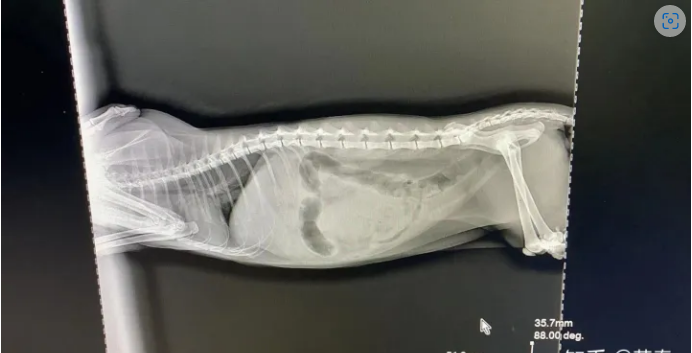Feline infectious peritonitis (FIP) is a viral disease that affects cats, especially kittens. It is caused by a virus called feline coronavirus (FCoV), a common virus that usually causes mild gastrointestinal symptoms in cats. However, in some cases, the virus can mutate into a more dangerous form, which can cause FIP.
Unfortunately, FIP is a very serious and often fatal disease of cats for which there is currently no known cure. Treatment of FIP is primarily aimed at controlling symptoms and providing supportive care to affected kittens.

Fluid therapy: Kittens with FIP are often dehydrated, and fluid therapy can help restore their fluid balance. Intravenous (IV) fluids may be given to ensure the kitten is properly hydrated.
Nutritional support: Kittens with FIP may lose their appetite, so it’s important to provide them with food and water. In some cases, a feeding tube may be inserted to ensure the kitten is getting adequate nutrition.
Medications: There is no specific medicine that can cure FIP, but some medicines may help manage the symptoms of the disease. For example, GS-441524 is an antiviral drug that can be used to suppress the virus. It has been verified that after taking GS-441 for 84 days in cats with FIP, the virus was completely suppressed, and the cat returned to a normal life without recurrence.
Immunomodulators: These drugs can help regulate the immune system, which may be overactive in cats with FIP. Examples of immunomodulators that may be used include interferons and cyclosporins.
Supportive care: Kittens with FIP may need supportive care, such as supplemental oxygen, to help them breathe more easily. They may also need help maintaining their body temperature and keeping them clean.

It is important to note that while these treatments may help manage the symptoms of FIP, they do not cure the disease. In most cases, even with the best supportive care and treatment, kittens with FIP will eventually succumb to the disease.
With FIP, prevention is key. The best way to prevent this disease is to minimize exposure to feline coronavirus, which can mutate into the more dangerous form that causes FIP. This can be achieved by practicing good hygiene, such as washing hands after handling the cat and its litter box, and keeping the cat’s environment clean and stress-free.
Also, some vaccines can help prevent FIP. However, there is some controversy about the effectiveness of these vaccines and they are not always recommended in all situations.
In conclusion, FIP is a serious and often fatal disease of cats for which there is currently no known cure. Treatment of FIP is primarily aimed at controlling symptoms and providing supportive care to affected kittens. When it comes to FIP, prevention is key and minimizing exposure to feline coronavirus is the best way to prevent the disease.